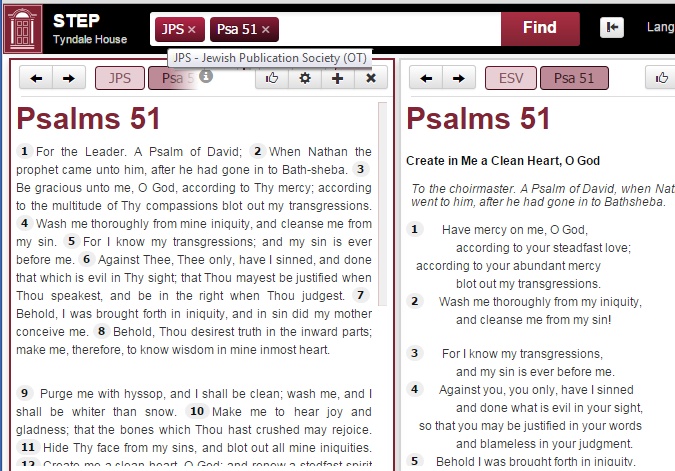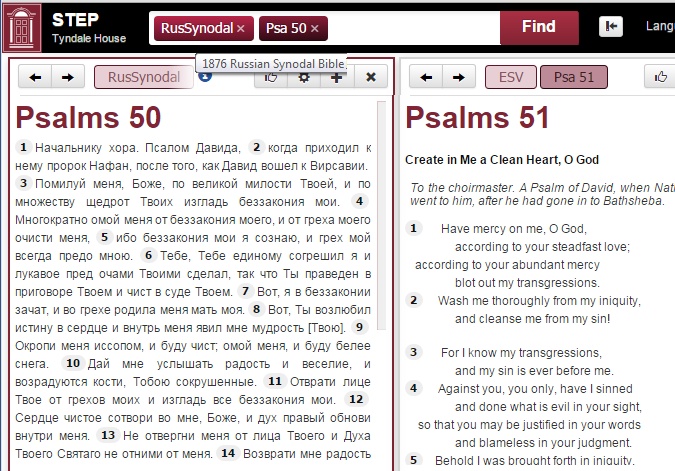STEPBible - Scripture Tools for Every Person - from Tyndale House, Cambridge
__
Chapters & Verses
Versification is slightly different in some Bibles.
The chapters and verses will always follow the first Bible or Commentary listed, which is displayed in bold.
This is important because different versions occasionally have different divisions of chapters and verses. See more here . For example, the last verse in the Old Testament is Malachi 4:6 in English but it is 3:24 in Hebrew because the English starts a new chapter at 3.19.
These kinds of differences may effect the display when different kinds of versions appear together as columns, interleaved, interlinear, searches.
The Bible was first divided into chapters in the 13th century, and then divided into verses in the 16th century. Before that, people used to refer to a section by citing the first few words. For example instead of referring to “Psalm 23”, they’d refer to “The Lord’s my shepherd”.
Remarkably, all Bibles are in complete agreement about almost all chapters and verses though there are many small differences. Most of the differences occur in the Psalms, for a few reasons:
- some versions follow the Hebrew Bible which puts the introductions in separate verses while others count them as part of verse 1 or put them before verse 1.
- some versions follow the ancient Greek tradition of merging Psalm 9 & 10 and dividing Psalm 147 into two. This means that every Psalm in-between is numbered differently.
- occasionally verses will be divided differently
Here is a complex example:
The verse “For you have delivered my soul from death…” (ESV Psalm 56:13) can have four different references.
- Almost all English versions follow the KJV, where the long introduction is part of verse 1 or placed before verse 1.
- All ancient versions make the introduction into verse 1, so that the text of the psalm itself starts and verse 2. So the last verse is verse 14.
- In ancient Greek and Latin translations this is Psalm 55, because they merge Psalms 9&10.
- Latin translations have an extra verse because they split one verse into two.
All this mean that this same verse is:
- Psa.56.13 in English For you have delivered my soul from death…
- Psa.56.14 in Hebrew כִּי הִצַּלְתָּ נַפְשִׁי מִמָּוֶת
- Psa.55.13 in Latin quoniam eripuisti animam meam de morte…
- Psa.55.14 in Greek ὅτι ἐρρύσω τὴν ψυχήν μου ἐκ θανάτου
www.STEPBible.org is created and supported by Bible scholars at Tyndale House, Cambridge
with a great deal of help from volunteers and partnering by many organisations.

